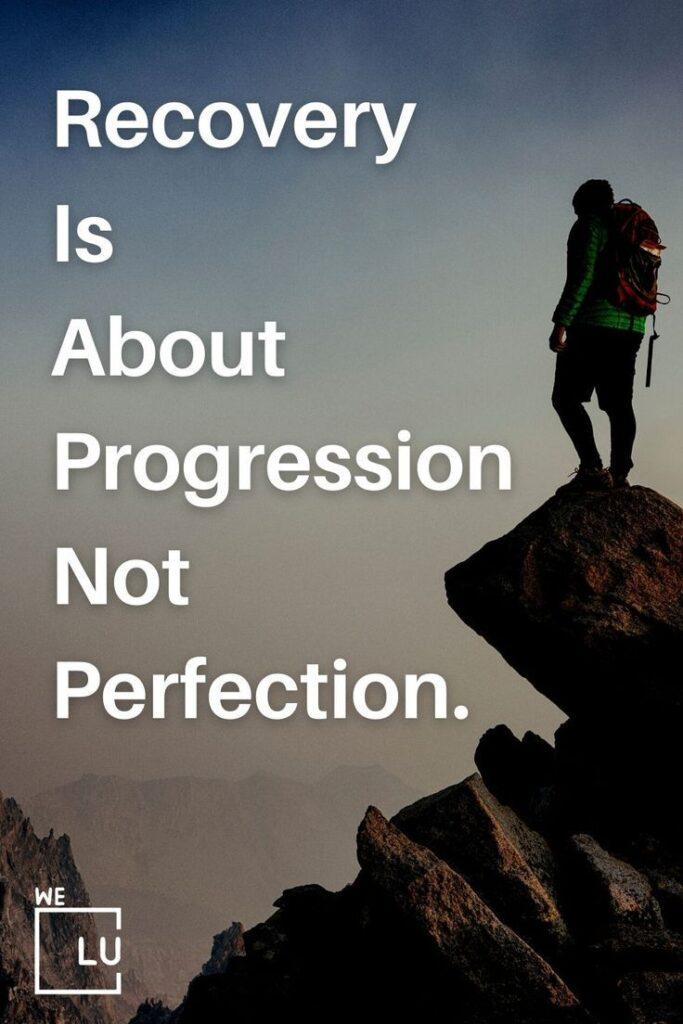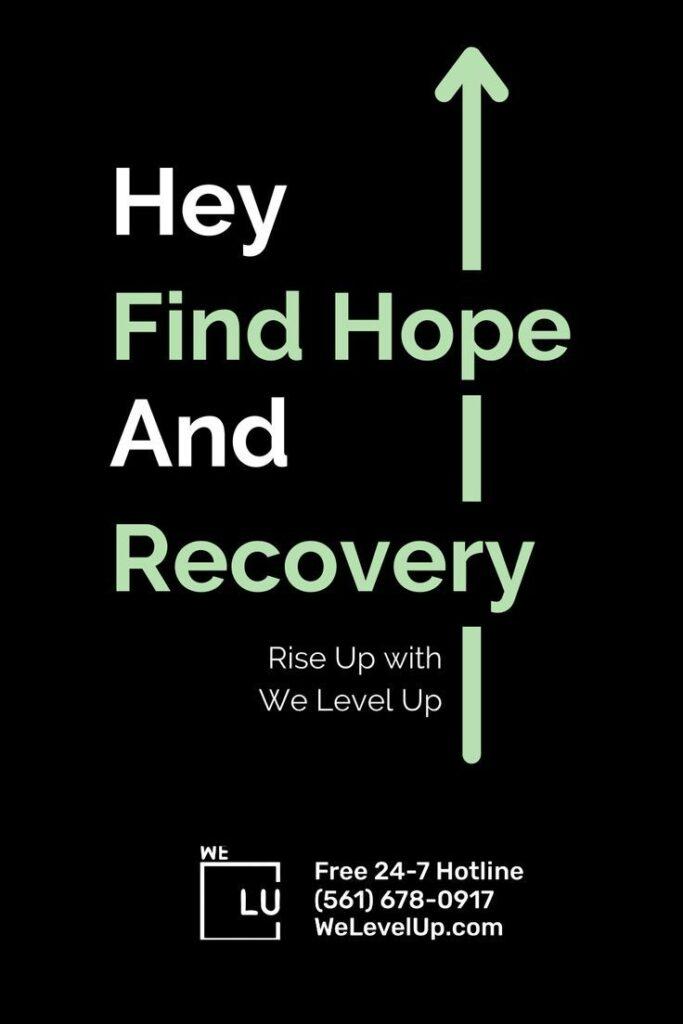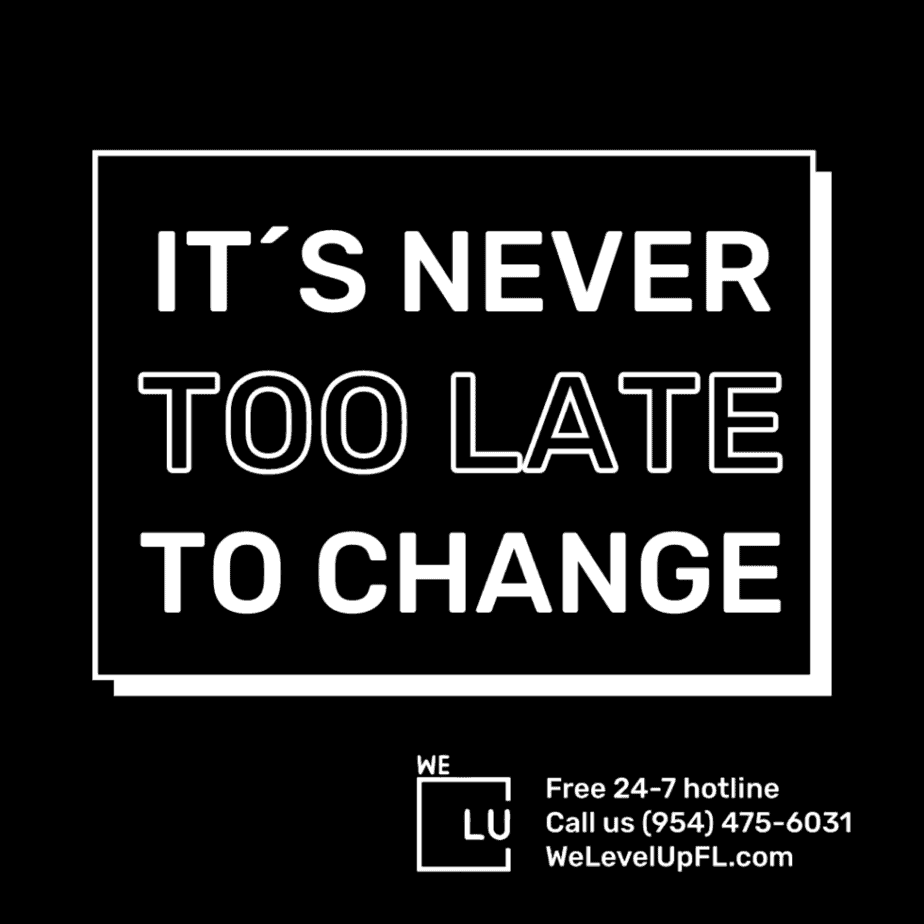Understanding Relapse Prevention Plan
A relapse prevention strategy is an essential tool for everyone in recovery. Having a plan lets you notice your actions that may indicate a potential relapse. It also discusses procedures for dealing with these behaviors and getting back on track.
Relapse prevention generally refers to condition management through compliance with medication regimes. Relapse prevention is a skill-based and cognitive-behavioral approach requiring clients and their clinicians to identify situations and triggers. However, there is substantial debate in the addiction treatment field over what constitutes a relapse. Because each individual’s recovery path is unique and personal, what one person considers a relapse may be deemed a “slip” by another.
Relapse risk factors include social influences and mental states that might rise to thoughts about taking drugs and, eventually, cravings and the desire to use. These potentially risky situations are known as “triggers.” Patients and clinicians also aim to identify lifestyle factors that affect the likelihood of these triggers (e.g., health behaviors like eating and sleeping and one’s group of friends). Relapse prevention clinical protocols typically include 12 weekly sessions.
Free Printable Relapse Prevention Worksheets PDF
Download and print your copy of a relapse prevention plan pdf below. This relapse prevention pdf provides tips for preventing relapse and identifying and reducing the associated risks. Relapse prevention strategies help people stay in recovery for extended periods.
Download the above free relapse prevention plan worksheet pdf/relapse prevention plan template. For many, relapse is typical while recovering from a drug use disorder. Relapse prevention requires self-education on the condition of alcohol use disorder or addiction. You must also know your triggers, like unwanted emotional states, physical discomfort, social pressure, and conflict with others. You will learn healthy ways of managing stress and anxiety, as it can fuel drug abuse if untreated. Beneficial coping mechanisms will help prevent a relapse. Creating a schedule helps lower relapse by keeping your thoughts occupied with your tasks and responsibilities.
Top 5 Recovery Rules in Relapse Prevention Planning
Relapse is a gradual process with distinct phases. The objective of treatment is to help people recognize the early stages in which the possibilities of success are most remarkable. Addiction recovery is a process of personal growth with developmental milestones. Each phase of recovery has its risks of relapse.
The main relapse prevention tools are cognitive therapies and mind-body relaxation, which are utilized to develop and enhance healthy coping skills. Furthermore, many relapses can be explained by a few basic rules. Educating patients on these recovery rules can help them focus on what is significant.
When involving oneself to relapse prevention activities, several crucial rules or principles can significantly enhance your chances of maintaining long-term recovery. Here are five fundamental recovery rules to consider:
The most crucial rule of recovery is that a person does not achieve recovery by just not using drugs. Recovery involves creating a new life that is easier not to use. When individuals do not change their lives, all the factors contributing to their addiction will eventually catch up.
Recovering individuals are often overwhelmed by the idea of change. As part of their all-or-nothing thinking, they assume that change means they must change everything in their lives. It helps them to know that only a small percentage of their lives needs to be changed. It can also be assured that most people have the same problems and must make similar changes.
Examples of Change
What do most people need to change? There are three categories:
- Change the negative thinking patterns.
- Avoid people, places, and things associated with using.
- Incorporate the five rules of recovery.
Clients need to develop a healthy fear of the people, places, and things that were part of addiction. But this requires significant mental retraining because those people, places, and things were previously associated with positive emotions. Also, clients tend to think that developing a healthy fear of these things is showing weakness or accepting defeat.
Addiction requires lying. Addicts must lie about getting their drug, hide it, deny the consequences, and plan their next relapse. Eventually, addicted individuals end up lying to themselves. Clinical experience shows that when clients feel they cannot be completely honest, it is a sign of emotional relapse. It is often said that recovering individuals are as sick as their secrets. One of the challenges of therapy is to help clients practice telling the truth.
How honest should a person be without jeopardizing his or her work or relationships? Clients are encouraged to understand the concept of a recovery circle. This is a group of people that includes family, doctors, counselors, self-help groups, and sponsors. Individuals are encouraged to be completely honest within their recovery circle. As clients feel more comfortable, they may choose to expand the size of their circle.
The most common misinterpretation of complete honesty is when individuals feel they must be honest about what is wrong with others. Honesty, of course, is self-honesty. A simple test of complete honesty is that they should feel “uncomfortably honest” when sharing within their recovery circle. This is especially important in self-help groups, in which, after a while, individuals sometimes start to go through the motions of participating.
Most people start recovery by trying to do it on their own. They want to prove they control their addiction and are not as unhealthy as people think. Joining a self-help group has been shown to increase the chances of long-term recovery significantly. Combining a substance abuse program and a self-help group is the most effective.
There are many self-help groups to choose from. Twelve-step groups include Alcoholics Anonymous (AA), Narcotics Anonymous (NA), Marijuana Anonymous (MA), Cocaine Anonymous (CA), and Adult Children of Alcoholics (ACA).
Other self-help groups include Women for Sobriety, Secular Organizations for Sobriety, Smart Recovery, and Caduceus groups for health professionals. It has been shown that the way to get the most out of 12-step groups is to have a sponsor, attend the meeting regularly, read 12-step materials, and have a goal of abstinence.
These are some of the generally recognized benefits of active participation in self-help groups:
- Individuals feel that they are not alone.
- They learn what the voice of addiction sounds like by hearing it in others.
- They learn how other people have recovered and what coping skills have been successful.
- They have a safe place to go where they will not be judged.
Understanding the importance of self-care helps to understand why most people use drugs and alcohol. Most people use drugs to escape, relax, or reward themselves. These are the primary benefits of using. It helps to acknowledge these benefits in therapy so that individuals can understand the importance of self-care and be motivated to find healthy alternatives.
Despite its importance, self-care is one of the most overlooked aspects of recovery. Without it, individuals can go to self-help meetings, have a sponsor, do step work, and still relapse. Self-care is difficult because recovering individuals tend to be hard on themselves. This can present overtly as individuals who don’t feel they deserve to be good to themselves or who tend to put themselves last, or it can show up covertly as individuals who say they can be good to themselves but who are ruthlessly critical of themselves. Self-care is especially difficult for adult children of addicts.
The purpose of this rule is to remind individuals not to resist or sabotage change by insisting that they recover their way. A simple test of whether a person is bending the rules is if they look for loopholes in recovery. A warning sign is when clients ask for professional help and consistently ignore the advice.
Broadly speaking, once clients have been in recovery for a while, they can be divided into two categories: non-users and denied users. Non-users say using was fun but acknowledge that it has not been fun lately. They want to start the next chapter of their life.
Denied users will not or cannot fully acknowledge the extent of their addiction. They cannot imagine life without using it. Denied users invariably make a secret deal with themselves that, at some point, they will try using again. Important milestones such as recovery anniversaries are often seen as reasons to use. Alternatively, once a milestone is reached, individuals feel they have recovered enough to determine when and how to use drugs safely. It is remarkable how many people have relapsed this way 5, 10, or 15 years after recovery.
Clients are encouraged to identify whether they are non-users or denied users. A denied user is in chronic mental relapse and at high risk for future relapse. Clinical experience has shown that everyone in early recovery is a denied user. The goal is to help individuals move from denied users to non-users.
Why Are Relapse Prevention Skills Important?
Relapse prevention plans are essential to learning to live a happy life in recovery. At any stage of recovery, there is a risk of relapsing, making relapse prevention programs highly necessary to know and understand.
Some of the most prevalent triggers of relapse include the following:
- Boredom.
- Stress.
- Money problems.
- Relationship issues.
- Certain sights and smells.
- Certain people or places.
- Falling into old habits.
- Anger.
Most alcohol and drug treatment centers educate clients on relapse prevention techniques and help clients learn them to maintain recovery and achieve short- and long-term goals. There are a vast array of relapse prevention tools one can implement into their daily routine to help prevent relapse.
Steps to Creating a Relapse Prevention Plan
While you may develop relapse prevention coping skills independently, it may be beneficial to go through the process with someone knowledgeable, such as a drug addiction counselor.
Relapse prevention strategies are usually verbal, although they can also be written.
Importance of creating a relapse prevention plan:
- Assess your history with drugs and alcohol.
- Determine any symptoms that could lead to relapse.
- Establish an action plan.
Inclusions of Relapse Prevention Plan
- Identifying triggers.
- How to manage cravings.
- Preventative tools.
- Support groups and programs.
- Lifestyle changes.

What to Expect in Relapse Prevention Therapy?
The patient should expect to do work honing and practicing relapse prevention skills outside the aftercare therapy sessions. This is sometimes referred to as “homework,” “practice,” or simply “outside activities.” These outside activities could include thought journaling that asks patients to draw their awareness to and work to change their thinking about their substance use.
Preventing relapse strategies help address potentially high-risk situations (e.g., exercise to cope with anxious feelings that may trigger thoughts about drinking, drink refusal skills at a social gathering, or calling someone from their support network).

Skip To:
Learn More:
- Free Sobriety Calculator, Online Sober Calculator & Sober Day Counter. Relapse Prevention Sober Calculator & AA Sobriety Calculator.
- What Percentage of Drug Addicts Relapse?
- Top 7 Reasons Why Do Addicts Relapse When Things Are Good
- Relapse Recovery Success in the New Year
- Tips to Stay Sober and Sobriety Strategies
- Aftercare Programs For Substance Abuse & Addiction
- Inspirational Addiction Recovery Stories. View Real-life Sobriety Stories. Recovery Addicts Stories.
- 100 Sobriety Quotes. Top Quotes About Sobriety to Keep Motivated & Encouraged. Celebrate Recovery Quotes. Sober Quotes to Level Up Your Day.
- We Level Up Addiction Recovery Activities
- Addiction Recovery and Mental Health Tips Videos
Get Help. Get Better. Get Your Life Back.
Searching for Accredited Drug and Alcohol Rehab Centers Near You?
Even if you have failed previously and relapsed, or are in the middle of a difficult crisis, we stand ready to support you. Our trusted behavioral health specialists will not give up on you. When you feel ready or just want someone to speak to about therapy alternatives to change your life call us. Even if we cannot assist you, we will lead you to wherever you can get support. There is no obligation. Call our hotline today.
(844) 597-1011Top 10 Coping Skills for Relapse Prevention
Coping skills are essential for preventing relapse when you’re trying to overcome addictive behaviors or maintain a healthy lifestyle. Here are some coping techniques that can support you in staying on track:
- Identify triggers: Be aware of the situations, emotions, or people that might trigger the desire to relapse. You can develop skills to cope with your triggers effectively by recognizing them.
- Develop a support network: Surround yourself with supportive and understanding individuals who can provide encouragement, guidance, and accountability. This can include friends, family members, support groups, or a therapist.
- Practice self-care: Take care of your emotional, physical, and mental well-being. Engage in activities that promote meditation, relaxation, and stress reduction, such as exercise, deep breathing exercises, journaling, or hobbies you enjoy.
- Build healthy habits: Establish a routine that includes regular exercise, nutritious meals, adequate sleep, and engaging in activities that promote overall well-being. Healthy habits can help fill the void left by addictive behavior.
- Learn and use coping strategies: Develop a toolbox of coping strategies that work for you. This can include techniques such as distraction (engaging in a different activity), mindfulness, relaxation exercises, positive self-talk, or seeking support from your network.
- Set realistic goals: Break down your larger goals into smaller, achievable ones. Celebrate your successes along the way, as this can boost your motivation and confidence.
- Practice stress management: Explore various stress reduction techniques like deep breathing, progressive muscle relaxation, yoga, or engaging in activities that you find exciting and calming.
- Develop healthy coping mechanisms: Replace unhealthy coping mechanisms (such as substance use) with healthier alternatives. This might include engaging in creative activities, seeking social support, or talking to a therapist.
- Avoid high-risk situations: Avoid environments, people, or activities that could trigger a relapse. It’s essential to create boundaries and make choices that prioritize your recovery.

- Stay positive and resilient:
- Remind yourself of your progress and achievements.
- Embrace a positive mindset and believe in your ability to overcome challenges.
- Remember that setbacks are a normal phase of the recovery process, and it’s essential to bounce back and continue moving forward.
Relapse Prevention Model Fact Sheet
Relapse Prevention Definition: To define relapse in addiction, you have to understand first that addiction can be challenging to manage, and with anything difficult to do, sometimes there are setbacks. Relapse prevention is all about reflection on one’s relationship with their drug of choice, understanding personal triggers, and recognizing behaviors that forego instances of using. To help better understand the definition of relapse in addiction, here are some of the relapse prevention models:
Gorski-Cenaps Relapse Prevention Model
Terry Gorski is an internationally recognized expert in substance abuse, mental health, violence, and crime.
Within his model, he states the following nine steps to be imperative in developing a CENAPS model of relapse prevention [1] or a Gorski relapse prevention plan:
- Self-regulation: Physical, psychological, and social stabilization.
- Integration: Completing a self-assessment.
- Understanding: Educating yourself on relapse signs and prevention steps.
- Self-knowledge: Recognizing warning signs for when you are likely to relapse.
- Coping skills: Managing these warning signs effectively.
- Change: Review the recovery plan.
- Awareness: this is through practice and consistency.
- Support: The involvement of significant others.
- Maintenance: A comprehensive follow-up plan.

Marlatt’s Model of Relapse Prevention
Dr. Gordon Alan Marlatt, a University of Washington Psychology professor, founded this relapse model centered around high-risk situations.
The Marlatt Model [2] illustrates how both tonic (stable) and phasic (short-lived) influences interact with each other to evaluate the likeliness of relapse.
The stages in Marlatt’s model of relapse prevention are as follows:
- High-Risk Situations: This stage involves identifying situations, emotions, or triggers that can increase the risk of relapse.
- Coveting: The thoughts, urges, or cravings that arise in response to high-risk situations. It involves a strong desire to engage in addictive behavior or use substances again.
- Euphoric Recall: Euphoric recall refers to the selective and idealized memories of past substance use experiences. Individuals may focus on the positive effects of using substances and overlook the negative consequences or problems associated with addiction.
- Abstinence Violation Effect: This stage occurs when an individual engages in a minor lapse or slip, breaking the abstinence from the addictive behavior. The abstinence violation effect refers to the adverse emotional and cognitive reactions following the setback, such as guilt, self-blame, and a sense of control. If not effectively managed, this stage can lead to a full relapse.
- Outcome Evaluation: After the lapse or slip, individuals evaluate the consequences of their behavior.
- Relapse: This final stage involves a return to addictive behavior or substance use. It may occur due to accumulating factors from the previous steps, such as high-risk situations, cravings, euphoric recall, and ineffective coping strategies.
Marlatt’s model emphasizes the importance of developing and utilizing coping skills at each stage to prevent relapse. These coping strategies include identifying and avoiding high-risk situations, practicing stress management, challenging euphoric recall with realistic appraisals, seeking social support, and learning from lapse experiences to prevent a full relapse.

Get Your Life Back
Find Hope & Recovery. Get Safe Comfortable Detox, Addiction Rehab & Dual Diagnosis High-Quality Care.
Hotline(844) 597-1011Addiction Relapse Statistics
Addiction relapse statistics can vary based on the specific substance or behavior being addressed and other factors such as individual characteristics, treatment approaches, and follow-up periods. Various factors influence relapse rates, and relapse should not be judged as a failure but as a potential part of the recovery process.
60%
The relapse rates for substance use disorders (such as alcohol, opioids, cocaine, or methamphetamine) can be significant. Studies have estimated relapse rates to range from 40% to 60% within the first year after treatment completion.
Source: NCBI
50%
Relapse rates for alcohol use disorder can vary, but research suggests that approximately 50% of individuals who receive treatment for alcohol addiction will relapse within the first year.
Source: NIAAA
90%
Opioid addiction, including prescription painkillers and heroin, has been associated with high relapse rates. Studies have shown relapse rates ranging from 60% to 90% within the first year after treatment. The relapse risk decreases with extended periods of abstinence and ongoing support.
Source: NCBI
Top 5 Relapse Prevention Techniques FAQs
-
Why do addicts relapse when things are good?
Addiction is often intertwined with underlying emotional or psychological issues. During good times, when an addict is not preoccupied with immediate problems, underlying issues may resurface. The individual may experience discomfort, anxiety, or a sense of emptiness, leading them to seek solace in substance use. When life seems to be going smoothly and everything is under control, addicts may become overconfident in their ability to handle substances without consequences. They may start to assume that they can use drugs or engage in addictive behaviors recreationally, leading to a relapse.
-
What is relapse prevention?
Relapse prevention refers to the strategies, techniques, and approaches to reduce the likelihood of a person returning to substance use or addictive behaviors after abstinence or recovery. It involves developing and implementing proactive measures to identify and manage potential triggers, cravings, and risky situations that may lead to relapse.
-
How to prevent relapse?
Establishing a solid support system, attending support group meetings, and seeking professional help to prevent relapse is crucial. Identify and avoid triggers and high-risk situations, develop healthy coping skills to manage cravings and stress, and make positive lifestyle changes such as maintaining a healthy routine, exercising regularly, and practicing self-care. Create a relapse prevention plan that includes steps to take in case of a crisis and continue engaging in ongoing treatment and aftercare services to ensure long-term recovery. Remember that relapse prevention is a continuing process that requires commitment, self-reflection, and proactive measures to maintain sobriety and well-being.
-
What is a relapse prevention plan?
A relapse prevention plan is a personalized strategy designed to help individuals in recovery anticipate and manage potential relapse situations. It typically includes specific steps and techniques to cope with triggers, cravings, and high-risk scenarios. The plan may involve the following:
• Identifying warning signs.
• Implementing healthy coping mechanisms.
• Maintaining a solid support system.
• Engaging in self-care activities.
• Having a clear response plan in case of a relapse crisis.A relapse prevention plan aims to empower individuals with the skills and tools to keep their recovery, make informed decisions, and minimize the likelihood of relapse.
-
Where to attend relapse prevention training?
Relapse prevention training is often provided in addiction treatment programs, rehabilitation centers, or clinics specializing in substance abuse and addiction. These programs may offer specific relapse prevention workshops, group therapy sessions, or individual counseling sessions focusing on developing relapse prevention skills.
Relapse Prevention Group Topics
Drug or alcohol use disorder is a chronic relapsing illness. Fortunately, relapse prevention group ideas aim to foster a supportive and educational environment where participants can learn from one another, gain insights, and acquire practical skills to prevent relapse. The group dynamic allows for shared experiences, mutual support, and accountability, enhancing the effectiveness of relapse prevention efforts.
The clinician or therapist will use a range of relapse prevention group activities and relapse prevention topics. For example, role-playing is common in many cognitive-behavioral approaches and relapse prevention plan examples. In addiction relapse prevention, the clinician and clients may act out an upcoming or common “real-life” situation to help with skill practice and application.
Relapse prevention strategies Include the following:
- Raising awareness of the possible negative repercussions of encountering high-risk settings and attitudes that equate drug use with positive results (i.e., it contradicts positive expectations about substance use).
- Helping the clients to develop and expand their repertoire of coping skills that address specific high-risk situations for relapse (often called “triggers”), whether those situations lead to drug use-related thoughts, feelings, or bodily sensations.
- Skills range from techniques to communicate with others when in a risky case (e.g., how to confidently and comfortably say “no” to a drink if it is offered, called “assertive drink and drug refusal”) to “urge surfing,” a technique. To help individuals cope with the intense longing to consume the substance during cravings.
- Planning for “emergencies.” That is an unexpected situation where the clients suddenly struggle to abstain from drinking or using other drugs.
- Assessing and reinforcing the patient’s confidence in their ability to refrain from substance use, even in challenging situations (e.g., self-efficacy).
- Finding alternative ways of thinking about positive thoughts related to substance use and negative thoughts related to abstinence is sometimes called “cognitive restructuring.” This activity includes discussing the thinking “traps” (sometimes called cognitive distortions or unhelpful thinking styles) that can develop after years of drinking and using other drugs.


Relapse Prevention Services at We Level Up
The We Level Up recovery center incorporates relapse prevention into all addiction treatment programs for effective and long-term recovery. Our goal is to rekindle a sense of normalcy in our clients and help them regain control over their lives once more.
Suppose you’re concerned about someone who has a problem with alcohol or drug use disorder. In that case, you will hope to know how you can help them overcome this dependence and even improve relapse prevention skills. There is no magic bullet to overcoming alcohol or drug addiction, as the road to healing is bumpy and has pitfalls and setbacks. Deciding to change is vital to overcoming addiction, and you must constantly remind yourself you want to have a change. Tell friends and family you are discontinuing use, and ask for their support.
Call We Level Up now to know and learn more about relapse prevention and other aspects of treatment. You can create a brighter future with the people you care about the most. Call today to bring healing and a huge grin back into your house for all your family members.
“Relapse doesn’t mean that treatment doesn’t work.” Addiction Facts
Get FREE addiction treatment insurance check – https://welevelup.com/rehab-insurance/
If you or a loved one is struggling with relapse or other substance use disorder(s), call for a FREE consultation 24/7 at (561) 678-0917
Experience Transformative Recovery at We Level Up Treatment Centers.
See our authentic success stories. Get inspired. Get the help you deserve.
Start a New Life
Begin with a free call to an addiction & behavioral health treatment advisor. Learn more about our dual-diagnosis programs. The We Level Up Treatment Center Network delivers recovery programs that vary by each treatment facility. Call to learn more.
- Personalized Care
- Caring Accountable Staff
- World-class Amenities
- Licensed & Accredited
- Renowned w/ 100s 5-Star Reviews
We’ll Call You
Search We Level Up Detox, Relapse Prevention, Mental Health Topics & Resources
Sources
[1] Menon J, Kandasamy A. Relapse prevention. Indian J Psychiatry. 2018 Feb;60(Suppl 4): S473-S478. DOI: 10.4103/psychiatry.IndianJPsychiatry_36_18. PMID: 29540916; PMCID: PMC5844157.
[2] Guenzel N, McChargue D. Addiction Relapse Prevention. [Updated 2023 Feb 5]. In: StatPearls [Internet]. Treasure Island (FL): StatPearls Publishing; 2023 Jan-. Available from: https://www.ncbi.nlm.nih.gov/books/NBK551500/
[3] Reducing Relapse Risk – Whole Health Library – Veterans Affairs (.gov)
[4] Prevention Resources – Substance Abuse and Mental Health Services Administration (SAMHSA)
[5] Relapse Prevention – Office of Justice Programs (.gov)
[6] Recovery/Relapse Prevention in Educational Settings – Department of Education (.gov)
[7] Online Relapse Prevention Study – Full-Text View – Clinical Trials (.gov)
[8] Relapse Prevention and Recovery Promotion in Behavioral Health Services – GOVERNMENT BOOK TALK
[9] Melemis SM. Relapse Prevention and the Five Rules of Recovery. Yale J Biol Med. 2015 Sep 3;88(3):325-32. PMID: 26339217; PMCID: PMC4553654.
[10] MedlinePlus Substance Use Recovery and Diet – U.S. Department of Health and Human Services National Institutes of Health


